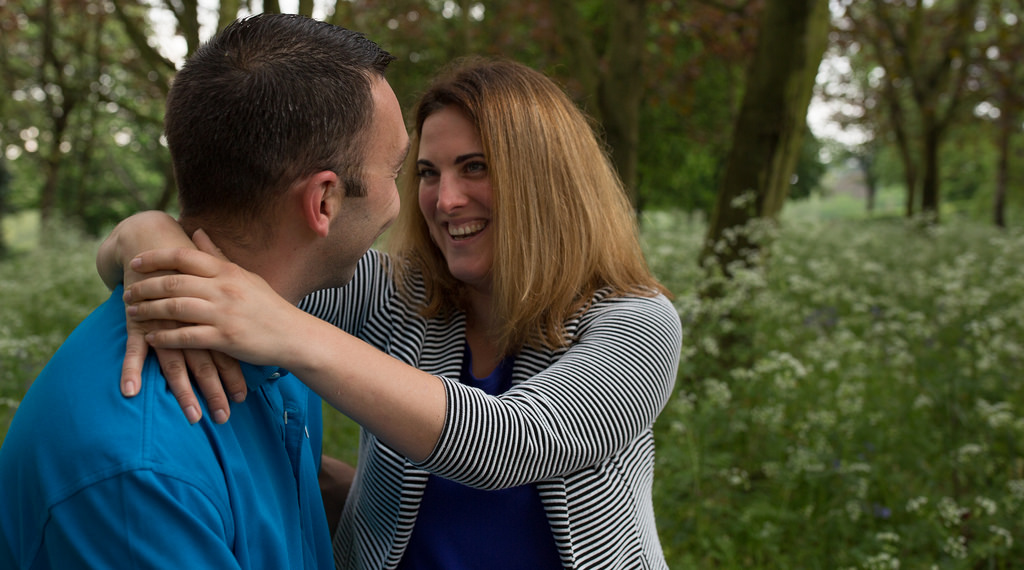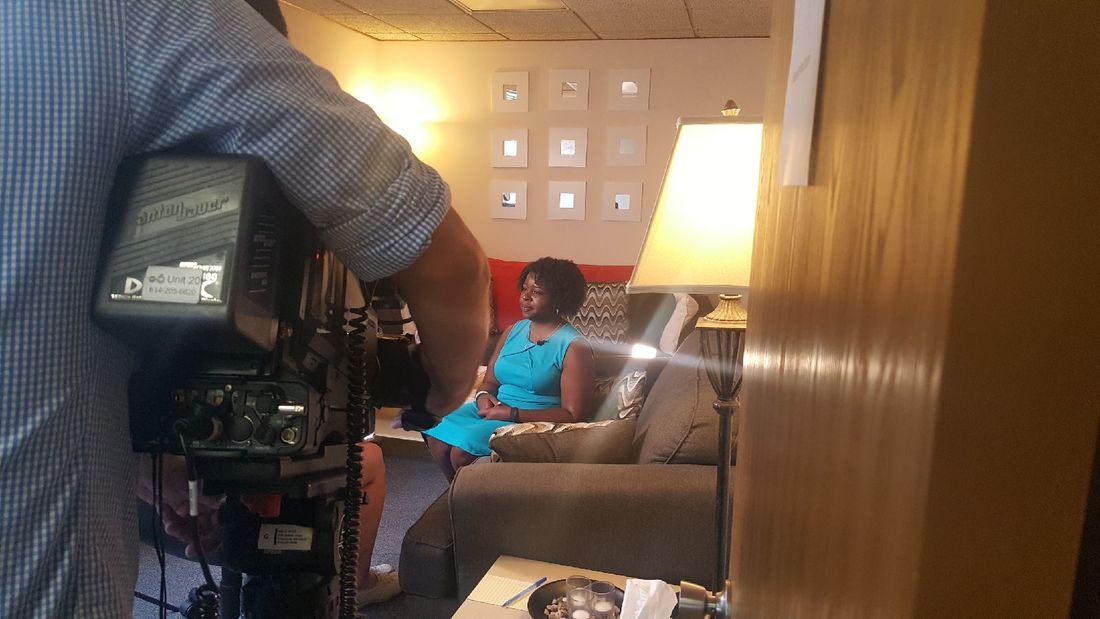|
Written By: Deidre Prewitt, MSMFC, LPCC
One of the hardest things for couples who are trying to recover from infidelity to understand is the need for conflict in order to heal. Many couples take the constant conflict as a sign that they are not doing well or have “unhealthy” patterns. This could be the case, but the presence of conflict does not signal a problem in recovery. In most cases, the lack of communication is one of the ways infidelity made its way into the relationship. Resentment breeds in the silence of a hurt and angry partner. Infidelity inhabits the relationship shrouded in that resentment. This resentment can morph into the justification and disconnection that can lead to an affair. The presence of conflict in affair recovery signals that this pattern has been disrupted. It may seem counter-intuitive but, many couples say they have the most honest conversations in the weeks and months that follow the discovery of the affair. In my practice, I equip couples and other clinicians with the knowledge that conflict is necessary for infidelity recovery. There are several ways a couple can use conflict to promote the healing they need to heal from the devastation of betrayal. My choice for the number 500 is arbitrary for the most part. I selected this number to make the point that it takes considerable effort from both the hurt and involved parties to heal after betrayal. If you want your relationship to heal from the breach, you will both have to work for it. I also think the number 500 speaks to the perseverance it takes to come back from the brink of ending a relationship. Honestly, no one (including the partners themselves) knows how long it will take to repair. I assure you, whatever the number is, it is possible if BOTH partners are willing to put in the work it takes. Not Just Any Conflict Will Do The “fight” is not just any argument. It is not without purpose or resolution. The “fight” I am referring to has distinct components that will heal more than hurt the bond in a relationship. Most fights start with the hurt partner being triggered by some thought, event, or feelings. They experience some distress and seek to rectify it. In a couple working toward healing, the hurt partner learns to share their feelings with their partner. They learn to reach out instead of feeding their own internal hurt, anger, and resentment. Their partner learns that (while difficult and sometimes hurtful) this is a sign their hurt partner wants to move toward feeling better and hopefully reconciliation. The reaching out may not seem positive. It may come wrapped in rage, sadness, or grief. The unfaithful partner can choose to interpret this engagement as a reach for them and respond in a way that promotes healing the hurt. The unfaithful partner can respond with empathy, compassion, and love. This response does several things. *It shows the hurt partner that their feelings are valid (because they are, perhaps it's their approach that is ineffective) *The unfaithful partner is showing remorse *The hurt partner is cared for These messages help to calm the overtly negative reactions in the future. From this “call and response,” a new communication pattern emerges. The couple learns to tolerate emotions they once perceived as negative and use that energy to heal the breach between them. 1 Down, 499 To Go When I am involved as the therapist in the healing of infidelity, I help couples to recognize when the opportunity to move closer to one another has presented itself. The first few fights are often extremely difficult to identify as opportunities and even more difficult to navigate. Inevitably, the unfaithful spouse will feel attacked and doubt that anything will calm their hurt partner. I work very hard to create a safe place where both partners are able to engage in the conflict and I guide them in communicating their emotions and feelings in a way that helps the relationship. Many couples can find this delicate dance without therapeutic intervention, the intervention simply helps them along. Once they are able to successfully complete this call and response, I encourage them by announcing they have one more fight under their belt and they are getting closer. Being successful in these fights also creates the safety and security the unfaithful partner needs to vocalize their own emotions. It is absolutely necessary for an unfaithful spouse to be able to express their emotions also if the couple ever wants to repair after infidelity. An unfaithful spouse needs to feel safe to vocalize their own hurt, sadness, and even anger if the couple hopes to extinguish the resentment that can feed infidelity. Bringing It All Together, But Not Yet The 500 fights can be very effective in accelerating the process of infidelity recovery. I often tell couples that their “number” may be considerably less or more than 500, but they will have to engage in these "fights" if they wish to heal. Each component is a building block, that must be learned in order, and are necessary to be effective. If the hurt partner doesn’t feel safe to share their emotions and be validated, they will not be able to offer this act of love to the unfaithful partner. In many relationships, one or both partners assume they already have this skill until infidelity is discovered. Discovery is a very hard way to learn that the bond in a relationship is a façade. The process of infidelity recovery is often an exploration of what is real in a relationship. The perfect couple learns they are not so perfect and they are going to have to destroy the illusion. The couple is forced to look inside themselves, look at the not-so-great parts of themselves and their partner, and then decide if they want to build a new, authentic relationship in spite of sometimes really ugly truths. Infidelity discovery is a painful, sad, and sometimes even freeing experience. The process can be healing, bonding, hurtful, and just plain hard. Many of my couples say their marriage is stronger after the process, even if they regret what it took to earn that strength. The feelings and experiences are life-altering and traumatic; so, it makes sense that couples would want to hurry to get to the end. Unfortunately, there is no easy button to healing. Hurrying the process means that the healing is only happening on the surface and is not penetrating the foundation of the relationship. Invest the time, energy, resources, and emotion to make sure you heal correctly so that you are not forced to repeat the process later. Take the time it takes, fight your 500 fights, and rebuild your love for one another. It is hard work, but it is certainly worth it! Photo by Anthony Tran on Unsplash
0 Comments
Written By: Deidre Prewitt, MSMFC, LPCC
The holiday season can be stressful on any relationship, much less one that is already struggling. We have to contend with colder temperatures, less daylight, and making great holiday memories. For some of us, even television commercials serve as a constant reminder that we must create a "perfect" holiday experience. Couples who already feel distant from one another may find it difficult to put effort into their relationship when so many other things are vying for their attention. The holiday season can be a time for connection and renewal; if we are purposeful about putting effort toward improving the relationship at home. I've put together a few suggestions that may help you and your partner get the best out of this holiday season. Choose Your Partner With the holiday, many of us experience more time with extended family. This can be a positive experience for some; while many find this increased family togetherness very stressful. Knowing the challenges both you and your partner may face is very important to adequately plan for a positive experience. While planning events, plan for emotional first aid for both of you. If you know that your partner wrestles with depression when their hypercritical mother visits or seems to crumble under the weight of their father's disappointment, talk to your partner about it. Allow them to vent to you without dismissing or minimizing their experience. Allow yourself to see your partner's pain. Ask them what they need to get through this experience. Create an alliance and develop a strategy that will reduce the stress of the interaction. Questioning why your partner allows this person to push their buttons may not help as much as understanding that this person pushes their buttons. Our families know exactly how to push our buttons because they are the ones who installed them. Many couples struggle with difficult family relationships because they do not realize that their bond is being tested. The "divide and conquer" strategy will succeed in pulling you apart if you are not prepared. Use the stressful events to bring you closer together and solidify the bond between you. Choose Your Battles The stress of the holidays can dramatically increase the conflict in an already stressed relationship. Pay attention to one another. If your partner is particularly stressed before an event, this may not be the time to argue about finances. Your concerns are valid and should be addressed; at the appropriate time. If you are already hurting and lonely, arguing about the holiday menu may feel like salt in an open wound. Set aside calm time when you, your partner, and your relationship are in a good space before discussing potentially controversial topics. When you give yourself and your partner time to calm you may find that the topic is not as important as it seemed originally. This may require a cost/benefit analysis. Consider asking yourself a few questions before engaging in this way.
Choose Your Boundaries Many conflicts over the holidays begin when we do not have adequate boundaries. If one family member seems to want to remind you of your failures and make you feel bad; limit your interactions. If a particular event makes your stomach turn each time you attend, you may want to consider opting out. This is your holiday too. It may not be in your best interest to force yourself to interact with family members that put you or your spouse down. Know what is acceptable behavior to you and resist the urge to succumb to the pressure to make others happy. . If your family is toxic that does not mean that you have to let effect you. You have the option to choose to allow that toxicity into your relationship. Honestly, not having boundaries between your relationship and your family can prove to be detrimental. Many couples struggle because parents, friends, jobs, hobbies, or other things come before their relationship. The holiday season can be a welcome distraction from a struggling relationship but ignoring your challenges may be detrimental. Find time to feed your relationship so that it can emerge stronger when the holidays are over. What you feed will flourish, what you starve will suffer. Choose to create protective boundaries around your relationship to help it to survive. Holidays can bring on good and bad stress. Having difficult relationships with the ones you love can very easily make this time of year more difficult. Creating a secure base in your relationship can help to make this time a little easier. Your relationship can be the safe place you need to reduce the stress of the season, if you put the effort into it. Its like building a house. Houses can be great shelters from the elements, if it is built. Build your house and protect yourself from the rain. Follow us on Facebook, Instagram, or Twitter for more tips to help your relationship survive this holiday season. If you are in or near Columbus, Ohio and need help with your relationship Click Here. Written By: Deidre Prewitt, MSMFC, LPCC
Doesn't all couple's therapy cover infidelity (affair) recovery? The short answer is....no. Being in relationship counseling does not automatically mean infidelity recovery. Very often, couples come to counseling to improve their relationship, but do not disclose previous betrayals. They may come asking for assistance with communication or managing conflict. Many couples believe that they have "gotten over" the infidelities because they choose to no longer discuss it. Some avoid it until they fight when the conversation continually circles back to the breach of trust. Unresolved issues in a relationship have a way of finding their way into almost any argument. The normal way that we clinicians conduct relationship counseling needs to be adjusted to accommodate and process the trauma of an affair if the couple ever expects to heal. Affair/infidelity recovery is a very complex experience. Some couples are able to recover without professional intervention based on their own hard work and dedication to the process. This is no easy feat, but once they are able to work through the breakdown, they can emerge stronger than ever before. Some couples need intervention because they need the blueprint to construct a new marriage out of the rubble of the old one. Learning communication tools, fighting fair, or spending quality time together will not heal the wounds of the infidelity. Doing this type of relationship work requires a special set of skills to help couples recover from the trauma and then open themselves up to co-creating their new relationship. Ignoring The Affair Maintains The Trauma Infidelity is an earth shattering event in a relationship. When trust is broken the entire relationship is left shattered. Some relationship theorists will discourage a couple from talking about the pain of the affair. This is detrimental to rebuilding trust going forward. After discovery, both partners have distinct experiences that need to be processed and respected. Most offending partners struggle with coping with and forgiving themselves for their actions. They may struggle with rectifying who they are with what they have done. The hurt partner struggles to understand the world around them. Both are hurting and reeling from the experience. Although the initial upheaval of emotion may subside over time; one or both partners will struggle with moving on completely. Decades may have passed but the pain hovers like a cloud over them. Clinicians skilled in infidelity recovery are able to acknowledge the wound, clean it out, and dress it appropriately; even when it is painful, to get to the healing. Avoiding the potential conflict will only continue to alienate the hurt partner and oppose the intimacy and closeness needed to allow them to be more intimate partners. Traditional Methods May Not Get To The "Heart Of The Matter" As a budding therapist I was lead to believe if I help a couple build intimacy, empathize with one another, or work through other issues; then infidelity scars would heal on their own. I could not have been more wrong. I found that even when I attempted to navigate the couple to heal other challenges in their marriage the betrayal would continue to resurface. Couples could complete a course of therapy and feel better only to return months or years later exactly where they were before. Traditional couples counseling was like putting a band-aid on a gushing wound. It may stop the bleeding for a short while but is not a permanent "fix". My primary goal is to put myself out of business so I had to find out what the core issue was if I wanted to prevent the revolving door of couple's therapy. Getting to the core issues in relationship counseling is a challenge in all therapeutic relationships. The presence of infidelity trauma only serves to deepen the complexity. Partners find themselves contending with the seemingly never-ending questions of "who", "when", "how" and the all-encompassing "why". Avoiding these answers leave distrust and hurt in a relationship. The heart of the matter lies in how to prevent the infidelity from happening again. This cannot be addressed without a structured, systematic way to address what the hurt is in the relationship. Finding Balance One of the most difficult things to learn as a counselor who specializes in infidelity is finding a delicate balance in validating both partners' experiences while not alienating either one of them. Both partners have valid emotions and neither is inherently a bad person. Striking a balance between challenging thoughts/behaviors that destroy trust and validating the emotions that motivate them is not an easy task. The approach is much more active and directive than traditional couples therapy as the couple needs to feel safe that the counselor has a direct path to healing. Many times, affair/infidelity recovery requires a crisis-oriented approach that may break the "rules" of allowing a client to find the answer themselves. It also requires that the therapist is not liked at some point as they challenge behavior that may throw recovery off course. In finding balance in the therapeutic relationship, the clinician is also given the task of finding balance in changing or competing goals for the session and the therapy. Some couples may not come in with the same goals (reconciliation vs. separation). Sometimes it is the therapist's responsibility to help them find their true motivations to help them meet their real goals when they cannot bear to say it. Not all couples who start the process of recovery want to continue together. Both need support in their decisions. Marriage counseling is a great option for those are struggling in aspects of their relationship. Going to therapy to heal the trauma of infidelity brings a different challenge to the situation. Many couples come into recovery in the midst of relational crisis and addressing other issues can make healing more difficult. If you are struggling with the trauma of infidelity it may not be best to assume that all counseling is "one size fits all". If you live in Ohio I would be honored to help you through the process. Click Here to contact me. Image credit: mahileather.com
Written By: Deidre Prewitt, MSMFC, LPCC
Couples attempting to restore their relationships in the wake of an affair experience a swarm of emotions. One minute they are enemies, the next they are starving for intimacy and connection. The relationship has changed and no one seems to know how to get through it. The whole world seems different and yet, it just keeps going as if life as you know it has not completely crumbled. When I see couples in my counseling office there is one question that continues to hang in the air like a million-dollar chandelier hanging by a single thread of dental floss. "How could you do this to me?" This single question continues to repeat like a mantra under hushed voices at midnight and loud voices in the middle of dinner. It seems to be the theme of almost every question asked about the affair. It keeps offended spouses awake at night and unfaithful partners in constant defense. This is the question that is asking so many other questions and begs to be addressed before healing can begin. How Could YOU Do This To Me? How could you, the person that told me that I was the most special person in the world, betray me like this? This question is about trust in the commitment to be responsible with a loved one's emotions. This is also about attachment. In most couples I see for infidelity recovery they are one another's most trusted person. Many times partners are the only trusted person. The offended spouse questions if this is the person they thought they knew. They question if they ever really knew this person at all, or if they should ever trust anyone again. To address this question is to address the identity of the person that was unfaithful. The hurting partner needs reassurance that the behavior does not define the whole person or their entire relationship. How Could You Do THIS To Me? How could you do this very personal, (assuming) mean-spirited, hurtful thing? This question is asking if the betrayal was premeditated. The query asks about the intent behind the specific behavior. It assumes that the offending spouse considered alternatives and willfully chose this action to use as attack. Some hurt partners read ill intent in the thought that their spouse conjured up this plan to hurt them in a very personal way. To address this question is to convey the absence of intent to harm by specific actions. Helping an aggrieved spouse to understand the actions are not purposeful in creating the depth of the pain. How Could You Do This To ME? This is the way the question is framed most in my office. How could you do this hurtful thing to create so much pain and punish me? The affair feels like a personal attack to most offended partners. It feels as though their spouse wanted to hurt them and knew this would destroy them most effectively. Many describe it as a dagger being hurled directly into their heart, with a twist and a smile. Others take it as confirmation that they are worthless and unlovable. To address this question is to address the feeling that this is a personal attack. An offended partner would need to be reminded (numerous times) that the act was not an intentional assault. Infidelity recovery requires many questions to be answered in order to successfully heal. These are only some of the ways this question can be delivered and received. This very complex question is an accurate representation of many questions asked during the restoration process. Recovering from an affair is difficult but not impossible. Couples can and have come back stronger than ever before. Repair may not be easy, but it could one of your relationship's greatest accomplishments. An Interview with Tara Morgan of WSYX6: Keeping Your Relationship Connected While Raising A Family8/28/2017 How does a Marriage Counselor end up on TV anyway? I'm not quite sure, but I had fun doing it and hope it helps someone.The story aired on 8/23/2017 and 8/27/2017 during the evening broadcasts in Columbus, Ohio and surrounding markets. Click Here to watch the story.
All hands on deck! I assume if you are reading this that your home is much like ours around this time of year. We struggle with coordinating open houses, supply lists, paperwork, clothes, shoes, new teachers, and bus routes, the list seems to never end. Lazy summer mornings are traded for pre-dawn wake-ups and 100-meter dashes to the bus stop. We forgo trips to the pool for trips to the local Supercenter for the unexpected item we neglected the day before. Managing all of this is exhausting! In all of the to-do list items competing for our attention, how do we keep our marriage alive? Here are a few suggestions to help your relationship alive (and dare I say thrive) through the chaos of this time of year. Remember You Are In This Together One partner may carry more of the load when managing day-to-day tasks, but in the end, you are a team. Sometimes it is easy to get irritable and soon begin to bicker with one another. Remind yourself and your partner that you are working together to get through this. When you disagree, try to hear the message instead of getting stuck on how it is being delivered. Get Organized To Stay Organized If your family is anything like ours, we start the year off really strong with organization. Sometime around the time the leaves change many families find those plans have dissolved into a distant and fleeting memory. Sticking with a plan can assist you in making it through this school year successfully. Spend some time organizing schedules and then put in time each week or month to check in and make sure the plan is still viable. Start basic and expand as time and needs require. That will help your family to maintain over the school year and allow you to find for just the two of you as well. This Too Shall Pass In most families this back to school chaos is not permanent. One day you will find that most of the emergencies were temporary annoyances and will soon be forgotten. Years from now you will live in the peace and harmony may come with no longer having school-aged children. Your family will find your own special kind of order and settle into a routine. Be patient, it will probably get better. Find ways to appreciate one another every day. What you say to your partner today may outlast the struggle you are in right now; becoming either comfort or contention for years to come. Take Time Out For Self-Care With all of the stress of meeting some deadline or standard don't forget to take care of your own individual needs. Some parents lose sleep over scheduling soccer practices and choir rehearsals. They drag themselves from activity to activity without stopping for rest or a decent meal. Your body is much like your car. If you don't put fuel in it, eventually it will stop. Do yourself, your partner, and your family a favor; get some rest. I don’t think the earth will stop because you take a nap every once in a while. Spend Time With Your Partner Sometimes it is easy to forget that you are more than just co-managers of the family. You are two people who love one another. The ultimate health of your family is largely determined by the health of your relationship. Put time for love and re-connection on your calendar because it is just as important as making sure the health forms are in by the deadline. Sneak away together on a regular basis. This helps your children to learn to prioritize their own relationships as well when their time comes. Regular attention to your spouse also teaches the children that they are not the center of the universe; helping them learn healthy boundaries. Starting a new school year is difficult for many families. The first day of school signals new beginnings. Sometimes the school year also signals new anxieties (or old ones repackaged). Acknowledging that you are working together for a common goal could be a great way to bond in your relationship. Setting a plan and sticking with it will model organization, teamwork, and togetherness. While managing the children make sure to take some time out to nourish your marriage, your relationship will thank you for it.  Energize Your Marriage Energize Your Marriage Written By: Deidre Prewitt, MSMFC, LPCC Sometimes after couples have been together for a long time they feel that the relationship gets stale. Date night (if you have it) is predictable and mundane. You have run out of things to talk about. You are existing but have yet to live that life you thought you would when you said "I do". Marriage does not have to be boring. It can be the best thing you have going; if you are willing to put some work into it. Clarify Your Vision Many of us had a clear vision of what we thought marriage would be. We daydreamed about travel, romantic nights, beautiful homes, the works. As we mature we realize that those dreams got pushed back by mortgages, growing careers, or children. We stopped allowing ourselves to live in what could be and traded for right now. Challenge yourselves to go back to your vision for what your marriage should be. Talk about the vision, write it down, put it somewhere you have to look at it every day. The clearer the vision the more likely you are to work toward it. Shut The World Out I cringe when I see a couple sitting across the table from one another at a restaurants deeply engaged in their phones. We live in a society where our devices get more attention than our spouses. If electronics are not screaming for our attention, our children, or careers are. In order for a relationship to work it has to receive some uninterrupted attention. On a regular basis make a point to turn everything off and tune everything else out that does not feed your connection. You both deserve one another's undivided attention. If we give all of our time, energy, and resources to everything else in life you may find that you may notice one day that are sleeping next to a complete stranger. Schedule An Appointment Everyday Effort and attention are key to making a relationship work long term. Some people argue that scheduling time together (particularly for intimacy) makes the event boring and routine. I challenge the couples I see in my counseling office to schedule special time together. Drs. John and Julie Gottman (the Gurus of couples' therapy) assert that 15-minute daily check ins are extremely important for repairing damaged relationships or maintaining great ones. They teach us that the "masters" of relationships understand the need to touch base with their partner daily. Most of us live by our calendars but leave connection to chance. We put effort in to this relationship in the beginning to ensure its success, why not put effort in to maintain its survival? Being intentional is imperative to having satisfying relationships. Learn Something New Even partners who have been married decades can learn something new about their spouses. At some point along the journey of a long-term relationship we start to believe that there is nothing more to glean from this union. Our knowledge of one another becomes stale and outdated. Just as you have changed since the beginning of your relationship, so has your partner. Take time out to learn likes and dislikes, observe the way they move, update your knowledge of their world. There is always something to learn about the complex human you chose to do life with. We are fully alive when we are growing, so take notice of the ways your partner has grown since you met. In life we are constantly moving and doing. With all of the things on our "to-do" lists we struggle to want to add enhancing our relationship to that list; until the neglect is apparent. We prioritize so many things above our marriage and then panic when it seems as though it is falling apart. Most couples are so excited about the wedding and honeymoon that they forget to plan a marriage. The wedding is a beginning to a (hopefully) long, happy life together. Happy marriages are amazing investments; but they require your determination, planning, and prioritizing. Your marriage can be amazing; if you are willing to make the effort. Knowing when to begin the process of finding a marriage counselor is an arduous task for some couples. Marital distress is exhausting and seemingly all consuming, but some couples assume it will get better over time. This is true for some, but not true for many others. Many marriages suffer unnecessarily because the couple waits so long to reach out. My experience with couples tells me if you are thinking about it, you should probably take that insight seriously; it may save your relationship. Here are some signs that it may be time to seek assistance with getting your relationship back on track.
You Acknowledge Your Relationship Is Not Working Some people expect their marital bond and happiness to decline over time. This is not the natural life cycle of a relationship. If you find that your marriage is suffering, stagnant, or emotionally painful than it is not working. We can feel when our relationships are not working. We no longer look forward to coming home from work or spending time together. Small disagreements turn into huge arguments. Neither of you feel loved, supported, or appreciated. You may have even tried to fix it on your own but nothing seems to work. This may mean it is time to reach out for help. You Need A Blueprint For A Successful Marriage Most of us haven't the slightest idea how to make a marriage work in 2017. The blueprint set forth by successful marriages in previous generations has become outdated. We have concerns we did not have in the past. We have to juggle social media, unlimited internet access, many of us have double income households, children, great careers, building businesses, etc. We struggle to figure out what our relationships are supposed to look like. If this is your struggle, you may consider an objective, well-trained ear to help you to define what your successful relationship will look like. Things Are Not Getting Better Every relationship has ups and downs. Some days you tell yourself that forever is not long enough to be in love with this person. Other days you question why you chose this person in the first place. Bumps in the road are normal and healthy. You will not be madly in love all of the time. Some days you will just be mad. You may consider making the call to a relationship therapist when the bad days far outweigh the good days, or the good days are so far and few between that you have lost track. This is a sign you may need some tools to help you communicate with one another more effectively. Some people still struggle with the stigma of couples counseling as if they are admitting defeat. This belief could not be further from truth. You are admitting defeat when you don't try. You are most powerful when you decide to work toward what you want. Relationship therapy is about investing in the commitment you made to one another. The road back to one another is not easy, but it is definitely worth it. I'm usually not a fan of Jay Z's music; however I was intrigued when the articles about 4:44 flooded my timeline. I had to check it out. What I found was the most honest, emotional, vulnerable Hip Hop track I've heard in a very long time. The lyrics reminded me of all of the partners who found themselves drowning in guilt and despair after their affair. As it is a response to his wife Beyonce's Lemonade album, I noticed it also parallels many of the "power couples" I meet in my counseling office, grasping to hold together the pieces of their own marriages after infidelity. What was most striking was his very public, very personal apology. He didn't try to hide behind excuses, he took responsibility without being defensive. As a Marriage Counselor who specializes in affair recovery I applaud his effort. He gets it. A couple will never recover without the heartfelt, vulnerable, emotional apology. I apologize. Our love was one for the ages and I contained us in all this rachet s***. We are more expansive now. Meant to cry and die alone in these mansions or sleep with our back turned. We're supposed to vacate till our backs burn. We're supposed to laugh till our hearts stops and then meet in the space where the dark stops and let love light the way.- Jay Z's 4:44 There are so many themes in these lyrics that mirror the themes I see in my therapy office. Two people who are on the top of the world being crushed by the hurt that was created between them. People assume they have a perfect life because of what can be seen from the outside. This is a relationship where both powerful and successful in their own rights, yet struggling with the pain of a crumbling marriage behind closed doors. Many people say they would leave if they ever encountered an affair. Some do because many times it is easier than sorting through the emotional wreckage. But, some brave souls who love each other, want desperately to preserve the love they had, and their dreams for their future roll up their sleeves and do the hard work that it takes to save their marriages. My client couples amaze me with their unwavering hard work and dedication to their careers. They are business people, CEOs, entrepreneurs, professionals, and politicians. They build awesome careers and are usually pillars of the community. They come in broken, hurting, and exhausted. Something incredible happens when they learn to channel the characteristics that made them successful into rebuilding their relationship. They find that they are able to thrive in their career and their relationships. Jay Z and Beyonce's struggles are not unique to them. The feelings of disconnect, hurt, sadness, grief, guilt, and shame are all part of the experience of infidelity. The therapy comes from the journey back to healing. This journey begins with a very real, very open, very emotionally raw apology. The marriage that is built from the wreckage promises to be stronger than the original. I'm glad they were both brave enough to share this with the world through their music. Hopefully, others will be inspired to do the hard work of recovering after infidelity as well. If you need help recovering after infidelity, I would be happy to help. Click here to learn more. |
AuthorDeidre A. Prewitt, MSFMFC, LPCC Archives
September 2019
Categories
All
|









 RSS Feed
RSS Feed
